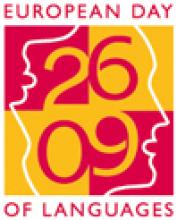Birmingham International Film Society offers some German films
Birmingham International Film Society and the Goethe-Institut are organising a German film season with introductions by academics from Birmingham University and Aston University.
The films are as follows:
CHANGING GERMANY: Migration and Imagination
Tuesday 5 February 6pm
When We Leave (Die Fremde) (12)
Dir: Feo Aladag Germany 2010
1hr 55mins German & Turkish with subtitles
Cast: Sibel Kekilli, Nizam Schiller, Settar Tanriögen
Unhappily married with a young son, German-born Umay lives in Istanbul. In desperation, she leaves her husband and returns unannounced to her parents in Berlin. Initially welcomed, she soon finds intense pressure on her to return, deemed to be bringing shame on her family by not living with her husband. Umay starts again from scratch, but she cannot totally forget her old life. Aladag portrays the life of a family bound by tradition while presenting Umay as a strong character, forced to revolt in order to survive and seek a chance of happiness.
Leila Mukhida (University of Birmingham) will be speaking about the film after the screening.
The film is presented in association with the London Goethe-Institut.
Winner: Six Awards including Best Film, German Film Critics Awards 2010
‘One of the best films I have ever seen. A remarkable achievement’ – The Huffington Post
CHANGING GERMANY: Migration and Imagination
Tuesday 5 February 8.30pm
Distant Lights (Lichter) (12)
Dir: Hans-Christian Schmid Germany 2003
1hr 41mins German, Polish & Russian with subtitles
Cast: Anna Janowskaaja, Ivan Shvedoff, Sergey Frolov
Set in two communities on the River Oder – Frankfurt in Germany and Slubice in Poland, Schmid interweaves a number of stories based on local research into illegal migration. A group of Ukrainians hoping to reach the ‘promised land’ of Berlin are stranded in Poland and try crossing the river at night. On the German side the locals are struggling trying to earn a living selling mattresses, car parts and smuggled cigarettes. A fascinating montage of Western and Eastern life on one of the key European borders at that time.
Dr Claudia Gremler, lecturer in German from Aston University will be speaking about the film after the screening.
The film is presented in association with the London Goethe-Institut.
Winner: Best Film, German Film Critics Awards 2004
‘Stylistically… a superb achievement’ – The Film Journal
CHANGING GERMANY: Memories
Wednesday 27 February 6.15pm
Jerichow (12)
Dir: Christian Petzold Germany 2009
1hr 28mins German with subtitles
Cast: Benno Fürmann, Hilmi Sözer, Nina Hoss
Jerichow - a small town in the ex-DDR plagued by population exodus and unemployment. Thomas, an ex-soldier returns to take over his mother's house. By chance he encounters Ali, owner of a snack bar chain in desperate need of a driver. The two become friends and Thomas works for Ali. Problems begin when he is attracted to Ali's wife Laura. Three people who have lost their way are brought together with tragic consequences. Petzold’s intriguing film is a taut, well-crafted reworking of The Postman Always Rings Twice reflecting the social impact of unification on the former East Germany.
Dr Elystan Griffiths (University of Birmingham) will be speaking about the film after the screening.
The film is presented in association with the London Goethe-Institut.
Winner: Best Film, German Film Critics Awards 2009
‘Petzold takes the Cain themes of lust and duplicity and twists them into a reflection on modern Germany, where nationalism and loyalties and identity and economics are jumbled and thrown into confusion’ – Film.com
CHANGING GERMANY: Memories
Wednesday 27 February 8.15pm
And Along Come Tourists (Am Ende Kommen Touristen) (PG)
Dir: Robert Thalheim Germany 2007
1hr 22mins German with subtitles
Cast: Alexander Fehling, Ryszard Ronczewski, Barbara Wysocka
Young German Sven opts to do his civil service at Auschwitz in Poland where he encounters Stanislaw, a survivor placed in his care, and Ania, a museum guide and translator. Little by little through his relationships with them he comes to terms with the disturbing history and uncomfortable present nature of Germany’s responsibility to the victims of a brutal and genocidal occupation. Based on his own civil service experiences, Thalheim’s subtle and sensitive film confronts the challenge to the new generation of young Germans in facing up to the Nazi/Holocaust past.
Dr Joanne Sayner (University of Birmingham) will be speaking about the film after the screening.
The film is presented in association with the London Goethe-Institut.
Winner: Critics Award, German Film Critics Awards 2008
‘The film lends a weighty topic a lightness of tone and yet remains enthralling’ – Filmdienst
Ticket Prices
£4 Full Price, £3 Concessions.
Double Bill special price: £7 Full Price, £5 Concessions
Available on the door on the night.
Winner: Best Film Education Programme 2011, Film Society of the Year 2010 & Best Film Programming 2010
BIFS is supported by the British Film Institute Transition Fund










